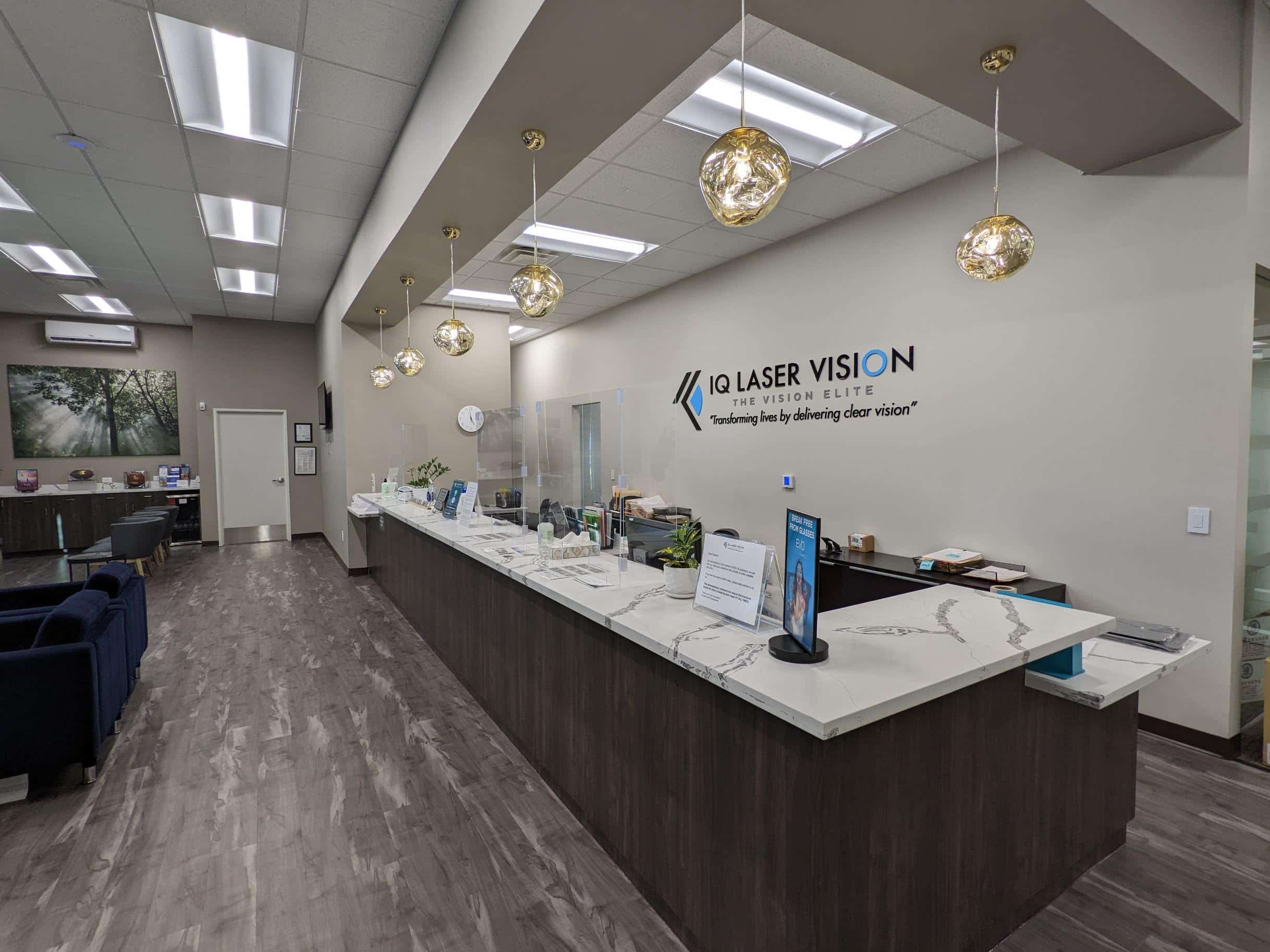Do you want to wake up every morning with crisp, clear vision? One option that can provide you with incredible visual freedom in Houston is LASIK.
LASIK is a permanent vision correction procedure that corrects nearsightedness, farsightedness, and astigmatism in qualified patients. If you want to achieve visual freedom, LASIK is one of the best ways to do it!
Does LASIK Permanently Fix Eyes?

LASIK is a laser vision correction procedure that corrects refractive errors. These include nearsightedness, farsightedness, and astigmatism.
LASIK uses two lasers: an excimer laser and a femtosecond laser. LASIK can permanently correct refractive errors and fix your vision using these lasers.
Getting LASIK is not only permanent, but it also corrects your vision far beyond the constraints of your original prescription. That’s why so many patients end up with 20/20 vision or better. Your vision will be crisper, clearer, and sharper than it ever was when you were forced to rely on glasses and contact lenses.
Although it’s a permanent procedure, getting LASIK will not prevent you from developing age-related eye conditions like cataracts or presbyopia.
Does LASIK Give You Better Vision than Glasses?
When you get LASIK, you’ll have your vision corrected so that it’s better than when you had glasses or contact lenses. LASIK corrects your vision beyond your original prescription, ensuring you can see better than when you had glasses.
People incorrectly assume they’ll have the same vision after LASIK, but getting LASIK means improved vision from what you could see with glasses. However, although most patients end up with 20/20 vision or better after LASIK, this is not guaranteed.
Every patient is different. If you have questions or concerns about what your vision could be like after LASIK, make sure to talk to Dr. Mattioli about these.
What are the Pros and Cons of Having LASIK Surgery?
There are always pros and cons to having any surgical procedure, including LASIK. So what are the pros and cons of having LASIK surgery?
Pros:
- Getting LASIK means achieving visual freedom from glasses and contact lenses
- Improved depth perception and contrast
- Better vision than before having the vision correction procedure because LASIK corrects your vision beyond your original prescription
- Crisper, sharper vision
Cons:
- Many patients end up with temporary dry eyes after the procedure
- You can’t participate in contact sports or strenuous activities for at least a month after getting LASIK
- The vision correction procedure has treatment limitations
- You must be in good health and have healthy eyes to get LASIK
What Does LASIK Eye Surgery Cost?
The cost of LASIK varies, especially in Houston. Typically, it ranges between $1,750 and $2,800 per eye.
Although the costs of LASIK eye surgery may seem high, it’s essential to remember that LASIK is a one-time cost that can be offset with financing and flexible payment plans. Consider that, on average most people spend about $500 a year on glasses, contact lenses, and various accessories.
You’ll no longer have to worry about these costs when you get LASIK. Eventually, LASIK will start paying for itself, leaving you with the vision of your dreams and more money to pay for the things that matter.
Imagine what you could do with the money you won’t have to spend on visual aids. Whether it’s opening your first business, taking a much-needed break to somewhere tropical, or deciding to splurge on a new wardrobe, the savings add up!
What Does LASIK Eye Surgery Do?

LASIK eye surgery is a refractive procedure that reshapes the cornea to correct refractive errors. The cornea is the front part of the eye.
Reshaping the cornea allows the eye to focus light more effectively, leading to clearer vision. LASIK uses excimer and femtosecond lasers to create a flap in the cornea and reshape the tissue in the cornea.
Reshaping the cornea provides patients with improved vision far superior to anything they ever had while relying on visual aids. LASIK is quick and painless thanks to numbing eye drops, with patients achieving almost immediate visual improvement.
Does LASIK Eye Surgery Have Risks?
Because LASIK is a surgical procedure, it does come with some potential risks. Patients may experience glare and halos around lights temporarily.
Patients may also notice their eyes feeling dry, which should dissipate over time. More serious risks and complications can occur, so it’s essential to thoroughly discuss these with your eye doctor at Mattioli Vision Professionals. Make sure you feel comfortable before undergoing LASIK.
Who is a Good Candidate for LASIK?
Although there’s a lot to love about LASIK, that doesn’t mean that everyone will be a good candidate for LASIK. A good LASIK candidate should be at least 18 years old, be in good health, have healthy eyes, not be currently pregnant or nursing, have thick enough corneas, and have a stable prescription that’s remained unchanged for a year or more.
What Age Is Good for LASIK Surgery?
To get LASIK surgery, you must be at least 18 years old. However, even if you’re 18, that doesn’t instantly mean you’ll be a good LASIK candidate.
In many cases, LASIK surgeons prefer patients to be in their mid to late twenties. Being this age helps ensure that the eyes have stopped developing and will not change after getting LASIK. The best time to get LASIK is once your eyes are stable and haven’t changed in a year or more.
Want to learn more about getting LASIK? The first step is determining if you’re a good candidate for the vision correction procedure.
Why not schedule your LASIK consultation at IQ Laser Vision with Dr. Mattioli in Houston, TX? You’ve got everything to gain, including the crisp, clear vision of your dreams!

This content has been reviewed and approved
Dr. Mattioli had LASIK himself over 22 years ago and has been practicing in Houston since 2001, caring for and treating local and international patients. He has personally treated several Wounded Warriors.
Dr. Mattioli is board-certified by the American Board of Physician Specialties in Ophthalmology. He has performed hundreds of cataract/implant procedures, and 65,000+ laser SMILE, LASIK, and PRK. Additionally, he performs specialized procedures including EVO ICL for myopia and astigmatism, as well as Intacs and crosslinking for keratoconus.























